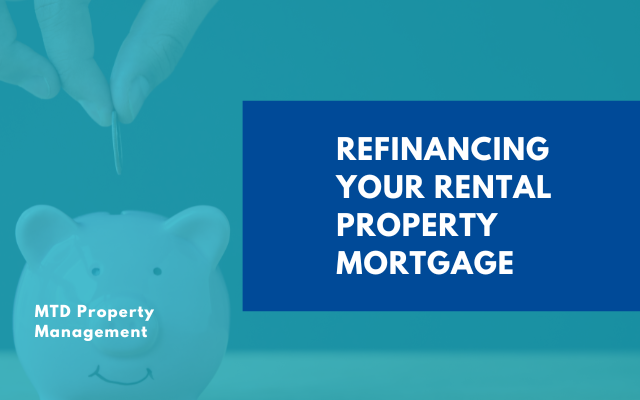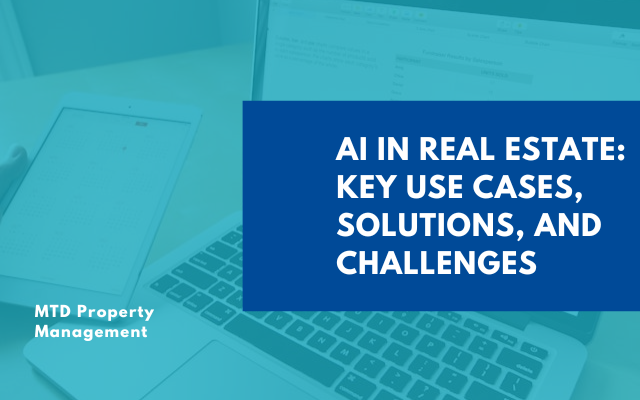Refinancing Your Rental Property Mortgage

Key Takeaways:
- Boost Profitability & Cash Flow: Refinancing your rental property can lower your interest rate, reduce monthly payments, and free up cash for reinvestments or property upgrades.
- Be Prepared for Stricter Requirements: Lenders have higher credit score, equity, and rental income standards for refinancing investment properties compared to primary residences.
- Property Management Helps You Qualify: A reliable property management company can improve your property’s performance, provide financial documentation, and help you meet lender criteria for a successful refinance.
Refinancing a rental property mortgage can be a powerful tool for real estate investors looking to improve cash flow, reduce expenses, or unlock equity. But it’s not a move to make lightly.
Unlike refinancing a primary residence, rental property refinancing comes with more complex requirements, higher rates, and stricter lender expectations.
For rental property owners who want to make the most of their investment, it’s important to understand the ins and outs of this process. The rental experts at MTD Property Management are here to highlight and explain the key features of rental property financing.
What Is Rental Property Refinancing?
Refinancing means replacing your existing mortgage with a new one—typically with different terms. Property owners usually refinance to take advantage of better interest rates, lower monthly payments, or to switch from an adjustable-rate mortgage (ARM) to a fixed-rate loan.
Others refinance to access built-up equity in the home through a cash-out refinance, using that money to reinvest in renovations, purchase new rental properties, or cover other business costs.

In the context of a rental property, refinancing is slightly more complex than doing so for your personal residence. Lenders view rental homes as riskier investments, which affects loan terms, interest rates, and eligibility requirements.
However, when used strategically, refinancing can be a smart financial move.
Why Refinance Your Rental Property?
There are several compelling reasons to refinance your rental property mortgage:
- Lower Your Interest Rate: Interest rates fluctuate over time. If you originally locked in a high rate, refinancing could reduce your rate and monthly payments. Even a one-percent reduction can lead to thousands of dollars in savings over the life of the loan.
- Boost Your Cash Flow: By reducing your monthly mortgage payment, you increase the difference between your rental income and expenses. This allows for higher profits, a cushion for maintenance costs, or room to reinvest.
- Access Equity with a Cash-Out Refinance: If your property has appreciated in value or you’ve paid down a significant portion of your mortgage, you may be able to tap into that equity. A cash-out refinance gives you a lump sum based on the property’s current value, which can be used to fund another rental purchase or upgrade your current property.
- Convert to a Fixed Rate: Adjustable-rate mortgages (ARMs) may start with low rates but can increase unpredictably over time. Refinancing into a fixed-rate mortgage can offer stability and predictable payments, especially in uncertain markets.
- Consolidate Debt or Shorten the Loan Term: If you’re juggling multiple loans, refinancing can help simplify payments. You might also opt to shorten your loan term—from a 30-year to a 15-year mortgage—to save on interest in the long run.
Requirements to Refinance a Rental Property
Before jumping into the refinancing process, it’s essential to understand what lenders are looking for. Requirements are generally stricter compared to primary residence refinancing.
- Equity: Most lenders require at least 25% equity in the property, meaning your loan-to-value (LTV) ratio must be 75% or lower. A lower LTV improves your odds of qualifying and helps secure better loan terms.
- Credit Score: A higher credit score is usually required. Lenders often look for a FICO score of 620 or higher, though 700+ is more competitive for investment property loans.
- Debt-to-Income Ratio (DTI): This ratio measures your monthly debt payments relative to your gross income. A DTI below 45% is typically preferred.
- Rental History and Income: You’ll need to demonstrate that your rental property is profitable. Lenders may ask for lease agreements, recent tax returns, or a rental income report to confirm the home generates steady income.
- Seasoning Requirements: Some lenders require that you own the property for a certain period (commonly six months to a year) before refinancing.
Potential Challenges to Consider
Refinancing a rental property isn’t always smooth sailing. It’s essential to weigh the challenges before you move forward.
One of the main hurdles is the higher cost of borrowing. Interest rates on investment properties are typically higher than those on primary residences. Lenders also charge more in fees and require larger down payments or equity cushions.

Additionally, the underwriting process can be stricter. If your property has frequent vacancies or inconsistent rental income, you may have trouble qualifying. Some lenders even cap the number of properties an investor can refinance, limiting your options if you own a large portfolio.
Cash-out refinancing may also have restrictions. While it’s a great way to access equity, not all lenders offer this option for investment properties, and those who do may set lower LTV limits than for rate-and-term refinances.
When Is the Right Time to Refinance?
Timing plays a significant role in your refinancing decision. The best time to refinance is when interest rates drop well below your current rate, your credit score is strong, and your property has gained substantial equity.
Market conditions also matter. If local rental demand is high and your property maintains consistent income, your application will be stronger. Refinancing during economic downturns or high vacancy periods could make lenders more hesitant.
It’s also smart to consider your long-term strategy. If you plan to hold the property for at least several more years, refinancing may yield long-term savings. But if you’re considering selling or switching to a different investment strategy soon, the upfront costs might not be worth it.
How a Property Management Company Can Help
Refinancing is ultimately a financial decision, but its success depends heavily on how well your property performs. This is where working with a professional property management company becomes highly valuable.
A skilled property manager helps keep your property in top condition, ensuring steady occupancy and reliable income, both of which are critical for loan approval. They handle rent collection, maintenance, resident screening, and communication, which reduces the likelihood of payment disruptions or turnover issues that could make lenders nervous.

Property managers also provide essential documentation. If your lender requires income verification, lease copies, or expense reports, your property manager can quickly deliver accurate and organized records.
Their detailed reports help establish your property’s financial stability, strengthening your refinancing application.
In addition, property management companies can guide you on market trends, recommend upgrades that increase your property’s value, and support your long-term investment strategy.
Final Thoughts
Refinancing your rental property mortgage can be a smart way to improve profitability, unlock equity, or secure more stable loan terms.
While it can be a game-changer for your rental business, weigh the pros and cons, consult with lenders, and work with experts who can support your journey.
Teaming up with a trusted property management company ensures that your investment continues to perform well, both for refinancing approval and long-term success. Reach out to MTD Property Management if you need help.









